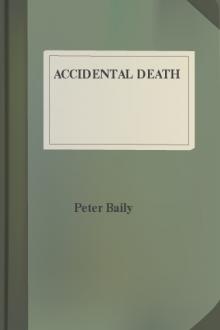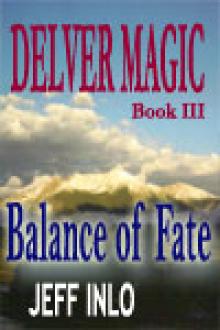Eco: Foucalt's Pendulum by eco foucault (important books to read .txt) 📗

- Author: eco foucault
Book online «Eco: Foucalt's Pendulum by eco foucault (important books to read .txt) 📗». Author eco foucault
"Ouch."
"As I was saying, themanifesto ends by promising that a huge treasure remains to bediscovered, along with stupendous revelations about the tiesbetween the macrocosm and the microcosm. And don't think that thesewere a bunch of tacky alchemists offering to show us how to makegold. No, that was small potatoes. They were aiming higher, inevery sense of the word. The manifesto announced that the Fama wasbeing distributed in five languages, and, soon to appear on thisscreen, the Confessio. The brothers awaited replies and reviewsfrom learned and ignorant alike. Write, telephone, send in yournames, and we'll see if you're worthy to share our secrets, ofwhich we have given you only the faintest notion. Sub umbra alarumtuarum lehova."
"Whichmeans?"
"It's a formula ofconclusion. Over and out. It sounds as if the Rosicrucians weredying to tell what they had learned, and were anxiously waiting forthe right listener. But not one word about what it was theyknew."
"Like that fellowwhose
icture was in the ad we saw on the plane: Send me ten dollars, andI'll tell you how to become a millionaire."
"And it's no lie. He hasdiscovered the secret. And so have I."
"Listen, you better readon. You're acting as if we just met tonight."
"With you, it's alwayslike the first time."
"Ah, but I don't get toofamiliar with the first one who comes along. Anyway, you have quitea collection now. First Templars, then Rosicrucians. You haven'tread Plekhanov by any chance?"
"No. I'm waiting todiscover his sepulcher a hundred and twenty years from now. UnlessStalin buried him with tractors."
"Idiot. I'm taking abath."
30
And the famousconfraternity of the Rosy Cross declares even now that throughoutthe universe delirious prophecies circulate. In fact, the momentthe ghost appeared (though Fama and Confessio prove that this was amere invention of idle minds), it produced a hope of universalreform, and generated things partly ridiculous and absurd, partlyincredible. Thus upright and honest men of various countriesexposed themselves to contempt and derision in order to lend opensupport, or to reveal themselves to these brothers...through theMirror of Solomon or in some other occult way.
¡XChristoph von Besold(?), Appendix to Tommaso Campanella, Van der Spanischen Monarchy,1623
The best came later, andwhen Amparo returned, I was able to give her a foretaste ofwondrous events. "It's an incredible story. The manifestoesappeared in an age teeming with texts of that sort. Everyone wasseeking renewal, a golden century, a Cockaigne of the spirit. Somepored over magic texts, others labored at forges, melting metals,others sought to rule the stars, and still others invented secretalphabets and universal languages. In Prague, Rudolph II turned hiscourt into an alchemistic laboratory, invited Comenius and JohnDee, the English court astrologer who had revealed all the secretsof the cosmos in the few pages of his Monas lerogliphica. Are youwith me?"
"To the end oftime."
"Rudolph's physician wasa man named Michael Maier, who later wrote a book of visual andmusical emblems, the Atalanta Fugiens, an orgy of philosopher'seggs, dragons biting their tails, sphinxes. Nothing was moreluminous than a secret cipher; everything was the hieroglyph ofsomething else. Think about it. Galileo was dropping stones fromthe Tower of Pisa, Richelieu played Monopoly with half of Europe,and in the meantime they all had their eyes peeled to read thesigns of the world. Pull of gravity, indeed; something else liesbeneath (or, rather, above) all this, something quite different.Would you like to know what? Abracadabra. Torricelli invented thebarometer, but the rest of them were messing around with ballets,water games, and fireworks in the Hortus Palatinus in Heidelberg.And the Thirty Years' War was about to break out."
"Mutter Courage musthave been delighted."
"But even for them itwasn't all fun and games. In 1619 the Palantine elector acceptedthe crown of Bohemia, probably because he was dying to rule Prague,the magic city. But the next year, the Hapsburgs nailed him to theWhite Mountain. In Prague the Protestants were slaughtered,Comenius's house and library were burned, and his wife and son werekilled. He fled from court to court, harping on how great and fullof hope the idea of the Rosy Cross was."
"Poor man, but what didyou expect him to do? Console himself with the barometer? Wait aminute. Give a poor girl time to think. Who wrote thesemanifestoes?"
"That's the whole point:we don't know. Let's try to figure it out...How about scratching myrosy cross...no, between the shoulder blades, higher, to the left,there. Yes, there. Now then, there were some incredible charactersin this German environment. Like Simon Studion, author ofNaometria, an occult treatise on the measurements of the Temple ofSolomon; Hein-rich Khunrath, who wrote Amphitheatrum sapientiaeaeternae, full of allegories, with Hebrew alphabets and cabalisticlabyrinths that must have inspired the authors of Fama, who wereprobably friends of one of the countless little Utopianconventicles of Christian rebirth. One popular rumor is that theauthor was a man named Johann Valentin Andreae. A year later, hepublished The Chemical Wedding of Christian Rosencreutz, but he hadwritten that in his youth, so he must have been kicking the idea ofthe Rosy Cross around for quite some time. There were otherenthusiasts, in Tubingen, who dreamed of the republic ofChristianopolis. Perhaps they all got together. But it sounds as ifit was all in fun, a joke. They had no idea of the pandemonium theywere unleashing. Andreae spent the rest of his life swearing hehadn't written die manifestoes, which he claimed were a lusus, aludibrium, a prank. It cost him his academic reputation. He grewangry, said that the Rosicrucians, if indeed they existed, were allimpostors. But that didn't help. Once the manifestoes appeared, itwas as if people had been waiting for them. Learned men from allover Europe actually wrote to the Rosicrucians, and since there wasno address, they sent open letters, pamphlets, printed volumes. Inthat same year Maier published Arcana arcanissima, in which thebrethren of the Rosy Cross were not mentioned explicitly, buteveryone was sure he was talking about them and that there was moreto his book than met the eye. Some





Comments (0)